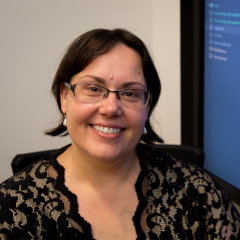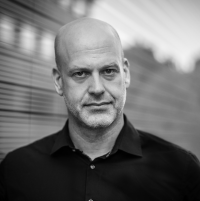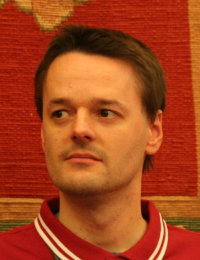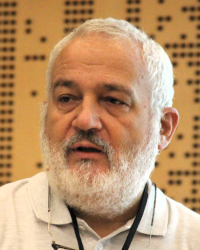Posted by: Ben Minerds 5 years, 5 months ago
Celebrating Software Freedom Day 2020

Free Software Melbourne and Linux Users Victoria are celebrating the 17th annual Software Freedom Day celebrations in Melbourne. We will present a range of leaders in the Free-Software community that will talk about the importance of Free-Software to a free society.
The SFD celebration will kickoff with what is "Free and Open Source Software" and why is it so important for a modern, digital society. We'll be hearing from leading contributors and organizers of companies building businesses around Free and Open Source projects. We're also going to talk about the ethics of software development and the advantages of building a prosthetic using open hardware. There is also the opportunity for networking opportunities in our general FLOSS chat room during the day.
- 10:00am - Welcome and Introductions
- 10:15am - What is Free Software?
- 11:00am - Dr Morgan Leigh - Give Me Convenience Or Give Me Death
- 12:00pm - FLOSS Chat Room
- 1:30pm - Lightning Talks
- 2:30pm - Kathy Reid - Good, better, breast: Building a sensing mastectomy prosthetic with open hardware
- 3:30pm - Frank Karlitschek - How Nextcloud stayed productive during COVID-19 and how others did the same
- 4:30pm - Mike Saunders & Italo Vignoli - LibreOffice: great history, great future
Participation is both free and liberating. Software Freedom Day is a family friendly event welcoming to anyone, pass on the word to help make it a great day. We have a code of conduct available on our website, but in short: Be respectful, Be inclusive and Be aware.
Hope to see you all online for our most exciting Software Freedom Day yet!
Details:
- Date: Saturday the 19th of September 2020
- Time: Talks starting at 10:00am and wrapping up about 6:00pm
- Location: Online with Big Blue Button
- Main Talk Room: https://bbb.freesoftware.org.au/b/fsm-hbo-gf9-43s
- Community Chat Room: https://bbb.freesoftware.org.au/b/fsm-dxk-cs1-2ct
- Meeting Tips: Mute microphone when not speaking. Headsets recommended to reduce feedback if you will be speaking. If you are having difficulty hearing or being heard there is a chat stream available. If you want to ask a question during the presentation either ask it in the chat or use the “raise hand” button.
- Code of Conduct: http://freesoftware.org.au/code-of-conduct/
Links:
- Blog: https://freesoftware.org.au/blog/software-freedom-day-19th-of-september-2020/
- SFD Global: http://wiki.softwarefreedomday.org/2020/Australia/Victoria/Melbourne/FSM-and-LUV
- SFD Australia: http://www.sfd.org.au
- Meetup: https://www.meetup.com/en-AU/Free-Software-Melbourne/events/273068374/
- Digital Innovation Futures Victoria https://dif.vic.gov.au/event/11988836-a/software-freedom-day-2020
SFD is sponsored by: Linux Australia
About the Talks and our Speakers
Give Me Convenience Or Give Me Death
About the Speaker
 Dr Morgan Leigh lives on a farm in sunny Tasmania where she ponders the ontological status of cyberspace and raises tasty animals. She is a pagan theologian, farmer, virtual world developer, and has a tragic science fiction addiction. Morgan's work centers on the ontological status of the remixes we call reality.
Dr Morgan Leigh lives on a farm in sunny Tasmania where she ponders the ontological status of cyberspace and raises tasty animals. She is a pagan theologian, farmer, virtual world developer, and has a tragic science fiction addiction. Morgan's work centers on the ontological status of the remixes we call reality.
Having pondered about cyberspace a lot, she did a PhD about it. It’s called Virtually Real: Being in Cyberspace, and you can see it at https://eprints.utas.edu.au/22422/. It's all about how things that happen online aren't "just games" or "not real" or "only code", but are real, actual things that people really care about and that affect the meatspace world.
Morgan is deeply concerned about copyright and its destructive effect on our society, especially in the academy. She even has a theological argument against it! Ask her, she'll tell you all about it. She thinks current copyright law is a destructive illusion that we can't afford to entertain.
Good, better, breast: Building a sensing mastectomy prosthetic with open hardware
Abstract
In Australia every year, around 18,000 women are diagnosed with breast cancer. Many will go on to have breast removal surgery, called a mastectomy. Only 12% of women who have a mastectomy will have reconstruction, and will instead opt to wear a silicon-based prosthetic.
These prosthetics are "dumb" - they're just silicone. They have 0 USB ports. What a great opportunity for open hardware!
As part of her term project in the Masters of Applied Cybernetics at the 3A Institute at The Australian National University, Kathy Reid, herself a breast cancer survivor, developed a prototype called "SenseBreast" - a sensing, smart, mastectomy prosthetic based on an RPi 3B+ and a Sense HAT. This was a "mucking around" project to learn Python, and she didn't expect it to work, but it did!
In this poignant, funny, challenging, technical, entertaining and irreverent presentation, she explores;
- motivations for the project, including a desire to keep sensor data private and personal - after all, who's watching?
- hardware design and sensor challenges in open hardware and Python
- prosthetic design and how to build a fake breast to contain hardware
- lived experience wearing a smart prosthetic
- implications for this technology, such as in post-mastectomy recovery
- and reflections on the broader landscape of wearable technology
About the Speaker
 Kathy Reid works at the intersection of open source, emerging technologies and technical communities. She is a former Director of Developer Relations at Mycroft.AI, former President of Linux Australia and former Digital Platforms and Operations Manager at Deakin University. In 2019, she was of 16 people from across the world chosen to undertake a Masters of Applied Cybernetics at the Australian National University's 3A Institute.
Kathy Reid works at the intersection of open source, emerging technologies and technical communities. She is a former Director of Developer Relations at Mycroft.AI, former President of Linux Australia and former Digital Platforms and Operations Manager at Deakin University. In 2019, she was of 16 people from across the world chosen to undertake a Masters of Applied Cybernetics at the Australian National University's 3A Institute.
First hand experience: How Nextcloud stayed productive during COVID-19 and how others did the same.
Abstract
We're all now experiencing how remote working and virtual conferencing are important tools to staying connected. Not just in the current circumstances but also looking at the future.
Unfortunately millions of people have adopted the proprietary online tools like GoogleDocs, Office365 and Zoom. All of which have well know privacy and security problems. As well as the loss of data sovereignty by users. That's why it's important to offer an easy-to-use, efficient, and quick free-software based replacement to these proprietary online tools. Nextcloud is just such a replacement.
Nextcloud is a platform for online collaboration and communication and can help people, businesses and communities to quickly adapt and stay connected. Because Nextcloud is free-software, users freedoms are respected and protected, avoiding vendor lock-in.
Nextcloud is built by Nextcloud GmbH that has employees in home-offices across 11 countries and the Nextcloud Community which is spread all over the world. This talk gives an inside look at how Nextcloud GmbH works together with the Nextcloud community to develop and maintain the Nextcloud software platform.
The talk covers different communication channels that work for synchronous and asynchronous communication. How distributed teams are coordinated and how effective and efficient collaboration using shared documents is possible. Additionally, a very important topic to share is the challenges and solutions on how to successfully work across different countries, timezones, languages, and cultures.
About the Speaker
 Frank Karlitschek is a long time open source developer and former board member of the KDE e.V. In 2016 he founded Nextcloud to create a fully open source and decentralized alternative to big centralized US cloud companies. In 2012 he initiated the User Data Manifesto to define basic human rights regarding personal data. Frank was an invited expert at the W3C to help to create the ActivityPub internet standard. Frank has spoken at MIT, CERN, Harvard and ETH and keynoted several conferences. Frank is the founder and CEO of Nextcloud GmbH. He is also a fellow of Open Forum Europe and an advisor to the United Nations regarding Intellectual Property and Open Source.
Frank Karlitschek is a long time open source developer and former board member of the KDE e.V. In 2016 he founded Nextcloud to create a fully open source and decentralized alternative to big centralized US cloud companies. In 2012 he initiated the User Data Manifesto to define basic human rights regarding personal data. Frank was an invited expert at the W3C to help to create the ActivityPub internet standard. Frank has spoken at MIT, CERN, Harvard and ETH and keynoted several conferences. Frank is the founder and CEO of Nextcloud GmbH. He is also a fellow of Open Forum Europe and an advisor to the United Nations regarding Intellectual Property and Open Source.
LibreOffice: great history, great future
Abstract
In 2020, LibreOffice celebrates its 10th anniversary in late September. So, the presentation is a good opportunity to recap 10 years of history, look at the recent LibreOffice 7.0 announcement, and provide some insights into the future of the project.
About the Speakers
 Mike Saunders has been a Linux and FOSS user, advocate and journalist since the late '90s, and today works in marketing and community outreach at The Document Foundation. He lives in Munich, Germany.
Mike Saunders has been a Linux and FOSS user, advocate and journalist since the late '90s, and today works in marketing and community outreach at The Document Foundation. He lives in Munich, Germany.
 Italo Vignoli is one of LibreOffice founders, and has managed marketing and helped with community outreach since day one. He is a FOSS and open standards advocate, is a consultant at The Document Foundation, and a board member at Open Source Initiative. He lives in Milan, Italy.
Italo Vignoli is one of LibreOffice founders, and has managed marketing and helped with community outreach since day one. He is a FOSS and open standards advocate, is a consultant at The Document Foundation, and a board member at Open Source Initiative. He lives in Milan, Italy.
Recent Posts
- FSA Meetup Aug 17th: General Free Software Discussion
- FSA July Meetup - Free Software Discussion Group
- Free Software Discussion Group
- Informal Free Software Discussion
- FSA April 20: Website Update, Software Freedom Day 2023 Brainstorming, and FLOSS in Education
Archive
2023
2022
- December (1)
- November (2)
- October (1)
- September (1)
- August (1)
- July (1)
- June (1)
- May (1)
- April (1)
- March (1)
- February (1)
- January (1)
2021
- November (1)
- October (1)
- September (1)
- August (1)
- July (1)
- June (1)
- May (1)
- April (1)
- March (1)
- February (1)
- January (1)
2020
- December (1)
- November (2)
- October (1)
- September (1)
- August (1)
- July (2)
- June (1)
- May (1)
- April (1)
- March (1)
- January (2)
2019
- December (1)
- November (1)
- October (2)
- September (1)
- August (2)
- June (1)
- April (2)
- February (2)
- January (3)
2018
- December (2)
- November (1)
- October (1)
- August (2)
- July (1)
- June (2)
- May (1)
- April (1)
- March (2)
- February (1)
- January (5)
2017
- December (1)
- November (1)
- October (1)
- September (1)
- August (1)
- July (2)
- June (2)
- May (2)
- April (1)
- March (1)
- February (2)
- January (1)
2016
- December (1)
- November (2)
- October (1)
- August (2)
- July (1)
- June (1)
- May (2)
- April (1)
- March (1)
- February (1)
- January (1)
2015
- December (1)
- November (1)
- October (1)
- September (1)
- August (1)
- July (1)
- June (2)
- May (1)
- April (2)
- February (3)
- January (1)
2014
- December (1)
Categories
- News (70)
- Free Software Melbourne (95)
- Free Software Brisbane (19)
- Melbourne (88)
- Brisbane (18)
- Meeting (82)
- Sydney (19)
- Free Software Sydney (20)
- Article (21)
- Free Software Australia (9)
Authors
- Ben Sturmfels (14)
- Adam Bolte (2)
- Ben Finney (1)
- Ben Minerds (70)
- Scott Junner (1)
- Olivier Mehani (1)
- michaelv (25)
- Damien Zammit (1)
- Les Kitchen (3)
- UnitTester (4)
- Fteacher (1)
- alexar (3)
Comments
There are currently no comments
New Comment